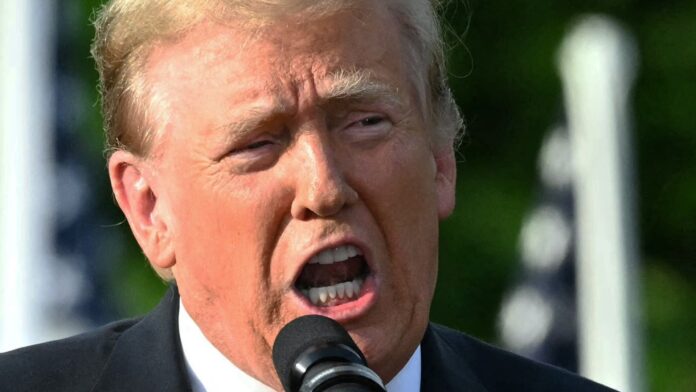Key Falsehoods or Claims:
The article discusses how Donald Trump has perpetuated numerous falsehoods and conspiracy theories, including the baseless claims of widespread voter fraud in the 2020 election, as well as spreading misinformation about the COVID-19 pandemic and the efficacy of vaccines. Additionally, the article highlights Trump’s role in promoting the dangerous QAnon conspiracy theory, which has led to further division and polarization within American society.
Source and Bias:
The article is an opinion piece published by USA TODAY, a mainstream media outlet that is generally considered to have a moderate to slightly left-leaning bias. While the article offers critical analysis of Trump’s falsehoods and their impact, it is important to note that it is presented from a perspective that is not supportive of the former president.
Analysis of Falsehoods’ Impact on Public Opinion and Democracy:
The article underscores how Trump’s lies and conspiracy theories have significantly shaped public opinion, with a significant portion of his supporters continuing to believe in the falsehoods he has propagated. This has led to a deepening polarization within American society, eroding trust in democratic institutions, and fueling political extremism. The perpetuation of these falsehoods also poses a significant threat to democracy by undermining the integrity of elections and fostering an environment of distrust and division.
Hypothetical Public Reactions and Political Outcomes:
Hypothetically, the article suggests that Trump’s lies and conspiracy theories have the potential to sway public opinion and influence voter behavior, with some individuals embracing these falsehoods as a basis for their political beliefs and actions. The article warns of the long-term consequences of such misinformation, including the erosion of democratic norms and the potential for further social and political unrest.
Further Reading Recommendations:
For further reading on the influence of media and misinformation on public opinion and democracy, reputable sources such as the Pew Research Center, the Harvard Kennedy School’s Shorenstein Center on Media, Politics, and Public Policy, and the RAND Corporation’s research on truth decay and the spread of misinformation can provide valuable insights into this critical issue.
Overall, the article provides a sobering analysis of the impact of Trump’s lies and conspiracy theories on public opinion and democracy, emphasizing the need for greater media literacy and critical thinking skills to combat the spread of misinformation.
Source link
Redirect URL
